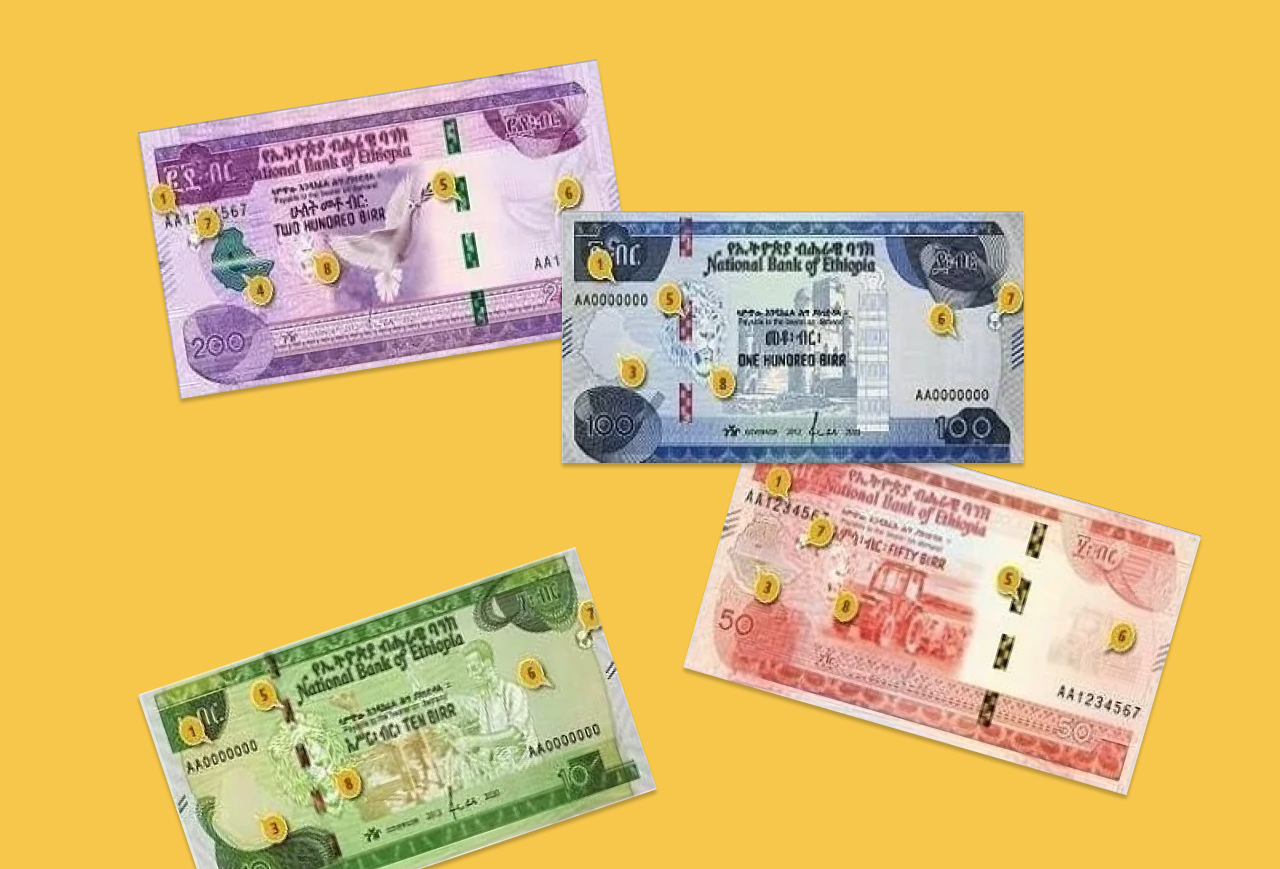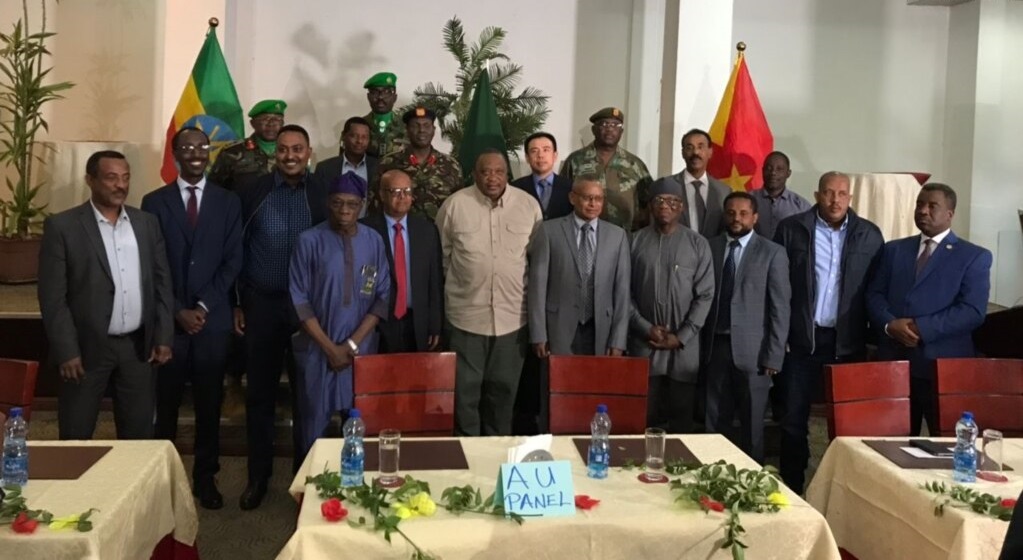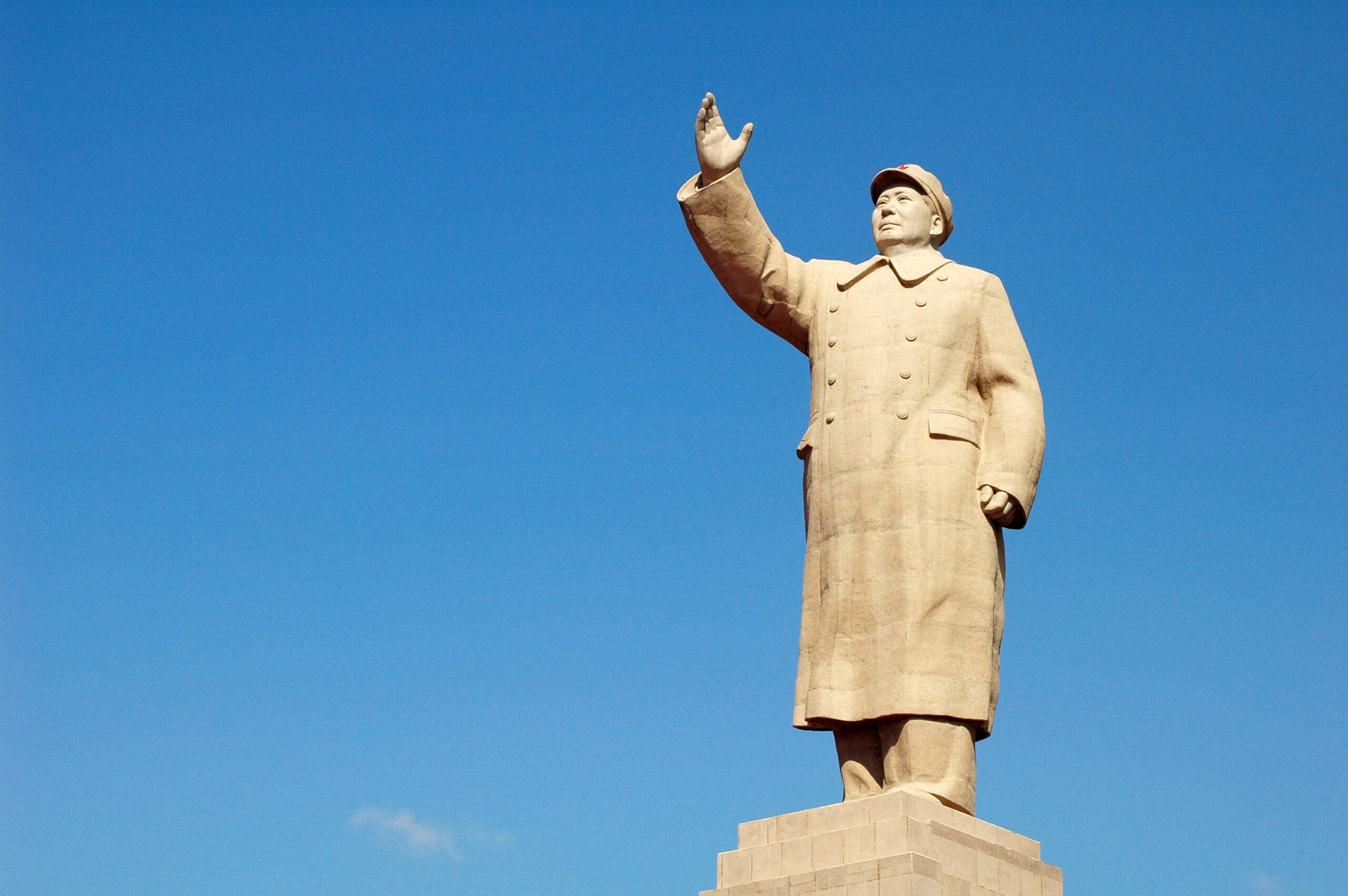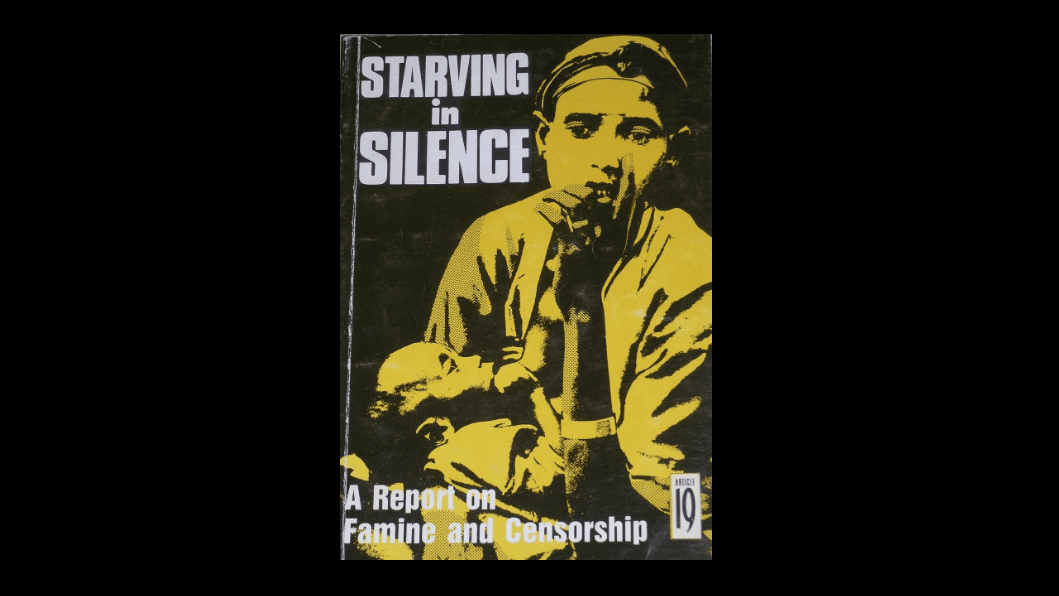Alex de Waal
“Re-introducing the Political Marketplace to Ethiopia” is available in both English and Amharic (see below).
Re-introducing the Political Marketplace to Ethiopia
I first began developing the concept of a ‘political marketplace’ fifteen years ago. I argued that the dominant concepts of statebuilding—the international project of creating governmental institutions according to a standardized template, and Ethiopia’s ‘developmental state’—didn’t take sufficient account of a powerful, emergent logic for how politics was run. I called it the political marketplace, a fusion of kleptocracy and gangsterism as a system of governance in which monetized, transactional dealings trumped institutions and regulations.
Among my first writings on this topic are a paper entitled ‘Mission without end? Peacekeeping in the African political marketplace,’ an essay entitled ‘Dollarized’ in the London Review of Books, and a contribution to a collection of writings on peacemaking by Conciliation Resources. An introduction to the theory is in this seminar paper and to the implications for policy in this memo. My book, The Real Politics of the Horn of Africa, developed the framework for Sudan, South Sudan, Somalia, and Eritrea.
I didn’t consider Ethiopia as a political marketplace, rather as a country in which state-building was threatened by marketization. My book includes a chapter on Ethiopia, drawing upon debates between PM Meles Zenawi and myself on this issue. Later, shortly after Abiy Ahmed was appointed prime minister, I published, The Future of Ethiopia: Developmental state or political marketplace? I was interviewed on the issue by Addis Fortune. I also wrote a paper on the trend in the Horn of Africa to embrace the monetized transactional politics of the Gulf monarchies at the expense of the principles and institutions of the African peace and security architecture.
When I first saw PM Abiy talking about the political marketplace I was puzzled. His advisors had obviously read the texts. (They must have read something about moral populism, the term used by my colleague Tim Allen, as well.) But I was bemused by how a critique of transactional, monetized and anti-institutional politics could be adopted by a practitioner of transactional, monetized and personalized politics as an endorsement of his style of government.
For Ethiopians reflecting on the political marketplace, let me make two key points.
First, a political marketplace is a system or a structure. It is not the behavior of individual people. An individual within such a system is obliged to operate according to the strictures of the market or else fail. I have compared the ethically-driven or public-spirited political entrepreneur to a small business owner who wants to develop and sell ethical goods, such as organic foods or cosmetics not tested on animals. Such a businessperson may have the best of intentions, and may win a niche market of committed consumers ready to buy her products at a markup, but unless her business can compete with the major grocery stores or pharmacies, she will fail. By the same token, reforming a political market—or in the language of policymakers, finding an ‘exit ramp’—can’t be done by exhorting individuals to be honest, nor by a clampdown on individual ‘rent-seekers’, or an anti-corruption drive. It can only be done by building institutions, establishing security and regulating money in political life. Ethiopians have experience of state building in this direction.
Second, Ethiopia is going through a process of rapid political marketization. The beginnings of this could be seen in the deregulation of corruption in the later years of the EPRDF but the real acceleration occurred after PM Abiy took office. In fact, most of the crucial elements for monetized transactional politics were put in place by PM Abiy himself. The Prosperity Party is a mechanism for personal patronage grafted onto the decaying structures of the EPRDF. The dismantling of some of the country’s core institutions—the army, the diplomatic service, though not yet the central bank and finance ministry—and their replacement with fragmented, informally organized replacements, indicates marketization. The embrace of transactional leaders in the Gulf, and the parallel and opaque financing of projects such as the new palace, are hallmarks of the political market business manager. Perhaps most telling is the way in which Ethiopian political life, which for decades was slow-moving and boringly predictable, has become turbulent—unpredictable from week to week but still retaining its recognizable pattern of endless bargaining over short-term benefits.
Most probably, Abiy and the Prosperity Party aren’t remotely interested in the theory of the political marketplace or the policies needed to extricate themselves from it. Rather, it’s a stratagem for purging the party of those who aren’t sufficiently loyal to the chief.
የፖለቲካ ገበያን ዳግም ለኢትዮጵያ ስለማስተዋወቅ
ስለ “ፖለቲካ ገበያ” ጽንሰ-ሃሳብ ማጥናትና ማሰላሰል ከጀመርኩ 15 ዓመታት ተቆጥረዋል። “የአገረ-መንግስት ግንባታ”፥ መንግስታዊ ተቋማትን በወጥነት ለማደራጀት የሚከናወኑ ዓለምአቀፋዊ ፕሮጀክቶች እንዲሁም ኢትዮጵያ የተከተለችው የ”ልማታዊ መንግስት”ን የመሳሰሉ ጽንሰ-ሃሳቦች ፖለቲካዊ ስርዐቶች እንዴት እንደሚደራጁ የሚጠቁሙ አመክንዮችን በበቂ ሁኔታ ከግምት ያስገቡ አይደሉም በሚል ሞግቻለሁ። ይህንን የፖለቲካ አወቃቀርም የፖለቲካ ገበያ በማለት ሰይሜዋለሁ። ይህ ሥርዐት የመንግስት ስልጣንን ለግል ሃብት ማካበቻነት የመጠቀም ዝንባሌ (ክሌፕቶክራሲ) እና የለየለት ወንበዴንትን( ጋንግስተሪዝምን) አዋህዶ የያዘ፣ ከፍተኛ የገንዘብ መጠን ፈሰስ የሚደረግበት እና በልውውጥ/እንካ-ለ-እንካ/ ላይ የተመሰረቱ ጉድኝቶች/ግንኙነቶች ከሕጋዊ እና ተቋማዊ አሰራር በላይ የነገሱበት ነው።
በጽንሰ ሃሳቡ ዙሪያ ከዚህ ቀደም ለንባብ ካበቃኋቸው ጽሁፎች መካከል ‘Mission without end? Peacekeeping in the African political marketplace እንዲሁም‘Dollarized’ in the London Review of Books, and a contribution to a collection of writings on peacemaking by Conciliation Resource የተሰኙ ዘለግ ያሉ ጽሁፎች ይጠቀሳሉ። ንድፈ-ሃሳቡን በዚህ ስሚናር ላይ በቀረበ ጥሁፍ ሳስተዋውቅ፥ በዚህ ሜሞ በፖሊሰ ረገድ ያለውን አንድምታ በተመለከተ አብራርቻለሁ። The Real Politics of the Horn of Africa, በተሰኘው መጽሃፌ ደግሞ የሱዳን፥ ደቡብ ሱዳን፥ ሶማሊያ እና ኤርትራ ፖለቲካዊ ማዕቀፍን ( framework ) አበልጽጊያለሁ።
በወቅቱ ኢትዮጵያን የአገር ግንባታ የንግድ ሸቀጥ (ማርኬታይዜሸን) እንደ ስጋት የተጋረጠባት አገር እንጂ የፖለቲካ ገበያ የሚስተዋልባት አድርጌ አልወስድኳትም። በመጽሃፌ ኢትዮጵያን በሚመለከት ከቀድሞ ጠቅላይ ሚኒስትር መለስ ዜናዊ ጋር በጉዳዩ ዙሪያ ካደረኳቸው ክርክሮች የተወሰዱ ሃሳቦችን የያዘ ምዕራፍ ተካቷል። ጠቅላይ ሚኒስትር አብይ አህመድ ወደ ስልጣን ከመጡ በኋላ The Future of Ethiopia: Developmental state or political marketplace? በሚል ርዕስ ጽሁፍ ያሳተምኩ ሲሆን በጉዳዩ ዙሪያ ከፎርቹን ጋዜጣ ጋር የቃለ መጠይቅ አድርጊያለሁ። ከዚህ በተጨማሪ ከአፍሪካ የሰላምና ጸጥታ አርኪቴክቸር መርህዎችና ሕግጋት በተጻራሪ በገንዘብና በልውውጥ ላይ የተመረኮዘው የአረብ ባህረሰላጤ ፖለቲካ በአፍሪካ ቀንድ ያለውን የተጽዕኖ አዝማሚያ የተመለከተ ጽሁፍም ለንባብ አብቅቻለሁ።
ጠቅላይ ሚኒስትር አብይ አህመድ ለመጀመሪያ ጊዜ ስለፖለቲካ ገበያ ሲያወሩ ስለመለከት ተገርሚያለሁ። አማካሪዎቻቸው የተጠቀሱትን ጽሁፎች እንዳነበቧቸው ግልጽ ነው። (በወዳጄ ቲም አለን ለመጀመሪያ ጊዜ የተዋወቀውን የሞራል ሕዝበኝነት ጽንሰ ሃሳብንም እንዳነበቡ ማስተዋል ይቻላል)። ሆኖም በገንዘብ እና በልውውጥ እንዲሁም ጸረ-ተቋማዊነት ላይ በተመረኮዘ ፖለቲካ ላይ የቀረበ ትችትን በገንዘብ ላይ የተመረኮዘ፥ የልውውጥ እና ግለሰባዊ ስርዐትን እንደ መንግስታዊ አሰራር እየተገበረ በሚገኝ መሪ በተውሶ ቀርቦ ስመለከት ግር ተሰኝቻለሁ።
ለኢትዮጵያውያን በፖለቲካ ገበያ ዙሪያ የሚከሉትን ሁለት ቁልፍ ነጥቦችን ለማንሳት እወዳለሁ፤
በመጀመሪያ የፖለቲካ ገበያ ስርዐት ወይም መዋቅር እንጂ የግለሰቦች ወይም የሰዎች ባህሪ አይደለም። በዚህ አይነቱ ስርዐት ውስጥ የሚገኝ ግለሰብ በገበያው መዋቅሮች/ሕግጋት መሰረት ለመንቀሳቀስ ይገደዳል፤ ይህ ካልሆነ ይከስራል ወይም ከገበያው ይወጣል። በግብረ-ገብ እና በሕዝባዊነት መንፈስ የሚንቀሳቀስ ፖለቲከኛን ሐቀኛ እና የንግድ ስነ-ምግባር ሕግጋትን በመከተል ማለትም በእንስሳእት ላይ ያልተሞከሩ የመዋቢያ ውጤቶችንና ተፈጥሯዊ የምግብ አይነቶችን ብቻ ለገበያ ከምታቀርብ ነጋዴ ጋር በማመሳስል እርዳቸዋለሁ። እንዲህ ያለችው ነጋዴ ቅንነት የሚስተዋልባት እንዲሁም በጥሩ ዋጋ የሚገዟት ታማኝ ደንበኞችን የምታፈራበት ውስን ገበያ ቢኖራትም ከትልልቅ የሸቀጥና የመድሃኒት መደብሮች ጋር በገበያው መወዳደር እስካልቻለች ድረስ መክሰሩዋ ወይም ከገበያ መውጣቱዋ አይቀሬ ነው። በተመሳሳይ መልኩ የፖለቲካ ገበያን ለማሻሻል ወይም በፖለሲ አውጭዎች አገላለጥ “የመውጫ በር/‘exit ramp’” በማበጀት ግለሰቦች ሐቀኛ እንዲሆኑ በመገሰጽ ወይም ኪራይ ሰብሳቢ ግለሰቦችን በማሰር ወይም የጸረ-ሙስና ዘመቻዎችን በማከናወን መፍትሄ ማግኘት አይቻልም። ይልቁንም ተቋማትን በመገንባት/ በማጠናከር፣ ጽጥታን በማረጋገጥ/በማስፈን እና ገንዘብ በፖለቲካ ውስጥ ያለውን ተጽዕኖ በመቆጣጠር ብቻ መፍትሄ ሊገኝ ይችላል። በዚህ ረገድ ኢትዮጵያውያን አገረ መንግስት የመገንባት ልምዱ አላቸው።
በሁለተኛነት፣ በአሁኑ ወቅት ኢትዮጵያ በፈጣን የፖለቲካ ገበያ ሂደት እያለፈች ትገኛለች። የዚህ ሂደት አዝማሚያዎች በኢህአዴግ የመጨረሻ ዓመታት በተንሰራፋው ሙስና መስተዋል የጀመሩ ሲሆን፥ ጠቅላይ ሚኒስትር አብይ አህመድ ወደ ስልጣን ከመጡ በኋላ ግን በፈጣን ሁኔታ ተቀጣጥለዋል። በእርግጥም የልውውጥና በገንዘብ ላይ የተመሰረቱ የፖለቲካ አሰራሮች በራሳቸው በጠቅላይ ሚኒስትር አብይ አህመድ በተጨባጭ ተግባራዊ ተደርገዋል። ለምሳሌ የብልጽግና ፓርቲ በፈራረሱ የኢህአዴግ መዋቅሮች ላይ የተደረተ የግል ጥቅም ማካበቻ (የፓትሮኔጅ) ስርዐት ማስኬጃ ( mechanism) ነው። እንደ መከላከያ እና የውጭ ጉዳይ መስሪያ ቤቶች (ማዕከላዊ ባንክ እና የፋይናስ ሚኒስቴር በቀጣይነት) ያሉ ወሳኝ የአገሪቱ ተቋማት መፈራረስ እና በተበጣጠሱ እና በኢ-መደበኛ መዋቅሮች መተካታቸው የማርኬታይዜሸን ሂደቱ ጠቋሚ ምልክቶች ናቸው። በልውውጥ ፖለቲካ ከሚታወቁ የአረብ ባህረ ሰላጤ አገራት መሪዎች ጋር የሚስተዋለው ቅርበት፥ ግልጽነት በጎደላቸውና በኢ-መደበኛነት ፋይናንስ የሚደረጉ እንደ አዲሱ የቤተመንግስት ግንባታ ያሉ ፕሮጀክቶች የፖለቲካ ንግድ ዋና ሃላፊ/ስራ አስኪያጅ መሰረታዊ መገለጫዎች ናቸው። ምናልባትም ለአስርት አመታት አሰልቺ፥ አዝጋሚና ተገማች የነበረው የኢትዮጵያ ፖለቲካ ተለውጦ በአሁኑ ወቅት የተናወጠና ስርዐት የጎደለው መሆን ሁነኛ ማሳያ ነው። ይህ የተናወጠ የፖለቲካ ሁኔታ ከሳምንት ሳምንት ኢ-ተገማች ቢሆንም ማብቂያ በሌላቸው በአጭር ጊዜ ጥቅሞች ላይ በሚደረግ የድርድር ሂደት መስመሩን ሳይለቅ ይከናወናል።
Photo: Ethiopia – New Banknotes, June 2022 (Creative Commons Attribution – Share Alike 4.0 International)



